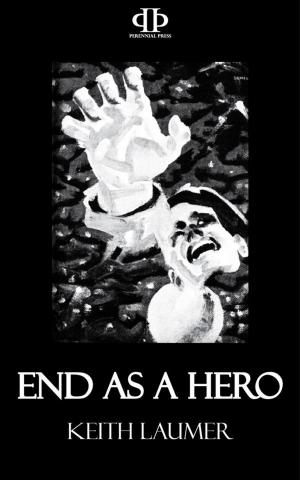| Author: | Achille Luchaire | ISBN: | 9781518365690 |
| Publisher: | Perennial Press | Publication: | January 8, 2016 |
| Imprint: | Language: | English |
| Author: | Achille Luchaire |
| ISBN: | 9781518365690 |
| Publisher: | Perennial Press |
| Publication: | January 8, 2016 |
| Imprint: | |
| Language: | English |
"THE world is ill; it grows so old that it relapses into infancy. Common report has it that Antichrist has been born at Babylon and that the day of judgment is at hand." In writing these lines, Rigord, the monk of Saint-Denis, was ignorant of the fact that other monks had expressed the same sentiment in all preceding centuries. Why this discouragement and these sinister predictions? Because the popes of his day were short-lived and succeeded each other with a strange rapidity; because Saladin had taken Jerusalem in 1188, that most fateful of all years,—"those born in it had only twenty-two, instead of thirty-two teeth"; finally, because natural calamities and scourges from heaven and earth, one after another, fell upon men and made them despair of their future.
Earthquakes, especially, dismayed them. Anjou was shaken in 1207; Normandy, in 1214; Gascony, in 1223. The tremor of March 3, 1206, was felt at the same time in Burgundy and Limousin. According to the monk of Saint-Martial, the shocks came in the middle of the night. Monks, saying their offices in the choir, took to flight, and laymen leaped from their beds; it was observed that even the birds trembled with fear and that water-courses were more boisterous than usual; and, to appease an irate Heaven, an extraordinary procession was arranged at Limoges.
Within forty-three years (1180-1223) fourteen cyclones ran riot with frightful ravages. Harvests and vineyards were destroyed, houses demolished, roofs carried away, belfries and towers beaten down, and turrets overthrown. The storm of Dun-le-Roi, in 1206, crushed a noblewoman with her two children beneath its ruins. That of 1221 lasted eight days and killed forty persons in the vicinity of Paris and Beauvais. While mass was being celebrated in the château of Pierrefouds, lightning struck it; the officiating priest and twenty-four assistants were grievously wounded; five were killed. The chalice containing the Host was reduced to powder; but, lo! the Host itself remained untouched...
"THE world is ill; it grows so old that it relapses into infancy. Common report has it that Antichrist has been born at Babylon and that the day of judgment is at hand." In writing these lines, Rigord, the monk of Saint-Denis, was ignorant of the fact that other monks had expressed the same sentiment in all preceding centuries. Why this discouragement and these sinister predictions? Because the popes of his day were short-lived and succeeded each other with a strange rapidity; because Saladin had taken Jerusalem in 1188, that most fateful of all years,—"those born in it had only twenty-two, instead of thirty-two teeth"; finally, because natural calamities and scourges from heaven and earth, one after another, fell upon men and made them despair of their future.
Earthquakes, especially, dismayed them. Anjou was shaken in 1207; Normandy, in 1214; Gascony, in 1223. The tremor of March 3, 1206, was felt at the same time in Burgundy and Limousin. According to the monk of Saint-Martial, the shocks came in the middle of the night. Monks, saying their offices in the choir, took to flight, and laymen leaped from their beds; it was observed that even the birds trembled with fear and that water-courses were more boisterous than usual; and, to appease an irate Heaven, an extraordinary procession was arranged at Limoges.
Within forty-three years (1180-1223) fourteen cyclones ran riot with frightful ravages. Harvests and vineyards were destroyed, houses demolished, roofs carried away, belfries and towers beaten down, and turrets overthrown. The storm of Dun-le-Roi, in 1206, crushed a noblewoman with her two children beneath its ruins. That of 1221 lasted eight days and killed forty persons in the vicinity of Paris and Beauvais. While mass was being celebrated in the château of Pierrefouds, lightning struck it; the officiating priest and twenty-four assistants were grievously wounded; five were killed. The chalice containing the Host was reduced to powder; but, lo! the Host itself remained untouched...















